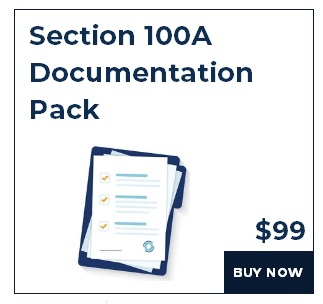
Birchstone Insights
Idlecroft v FCT [2005] FCAFC 141
Third in our series of section 100A cases and relevant to the findings in the first case we considered, East Finchley, this week we touch on the decision in Idlecroft Pty Ltd v FCT [2005] FCAFC 141.
This matter related to a joint venture agreement formed between three discretionary trusts (Trusts) to develop property in South Australia. The Trusts each appointed Westside Commerce Centre Pty Ltd as trustee for the Hendon Unit Trust (Unit Trust) as a beneficiary. The Unit Trust had significant tax losses, and the Trusts utilised these losses by distributing of all their income to the Unit Trust. The Unit Trust was only paid a small margin of the income it was appointed.
In determining that section 100A applied to this arrangement, the Court stated that:
The connecting circumstances between the entitlement of the default beneficiaries came about because the appointments of income designed to give effect to the reimbursement agreement were invalid. The appointments came into effect because of the existence of the reimbursement agreement.
It was argued by the Trusts that section 100A could not apply because the default beneficiaries were entitled to the trust income as the addition of the Unit Trust as a beneficiary was not valid. On this basis, the taxpayers argued that there was not a reimbursement agreement under section 100A, because as commented on by Hill J in East Finchley, this requires an agreement with the default beneficiaries. However, in overturning the findings made by Hill J, the Court held that the definition of ‘agreement’ contained within section 100A does not require the beneficiary to be a party to the agreement.
The Court also held that the beneficiary in question does not even need to be the object of the reimbursement agreement. The court adopted a ‘but for’ test to hold that section 100A applied – but for the existence of the reimbursement agreement (which did not included, either as a part to, or the subject of the agreement, the default beneficiaries), the (invalid) appointments to the Unit Trust would not have been made, and therefore the default beneficiaries would not have received their default entitlements.
While the Court did provide some useful clarification on how the definition of ‘agreement’ in section 100A operates, there is again little to no clarification on some of the more contentious parts of the section. This is not surprising given that the taxpayers conceded parts of the case.
Next week we will finish off our section 100A journey by looking at the decision of the High Court in Raftland Pty Ltd as trustee of the Raftland Trust v FCT [2008] HCA 21.
ATO Update
Class Ruling
The ATO has issued Class Ruling CR 2021/57 which sets out the income tax consequences for the Australian-resident holders of Primewest Group stapled securities (consisting of shares in Primewest Group Limited and units in Primewest Property Fund) in relation to the acquisition of those securities by the Centuria Capital Group.
Cases
Kahlon Estate Wines Pty Ltd as trustee of Kahlon Family Trust v FCT [2021] AATA 2872 – Wine equalisation tax
The AAT has upheld amended assessments issued to a vineyard and commercial winery operator in relation to wine equalisation tax (WET) exemptions.
The taxpayer trustee company, which was owned and controlled by a husband and wife couple, operated a vineyard and commercial winery. After the previous winemaker resigned in 2013, the husband decided to operate the business himself despite only having a minimal understanding of the WET regime. The husband also employed the help of a part-time bookkeeper who did not understand the documentation required to properly claim the WET exemption. Following an ATO audit, the taxpayer was found to have unpaid WET and GST of $157,997 (reduced by a later objection) and was imposed penalties of $47,827 (reduced by a later objection). A large amount of the unpaid tax related to the taxpayer claiming a WET exemption, despite the requisite form being filled out after the sale and then backdated (which clearly did not satisfy the legislative requirement).
The AAT largely upheld the assessments and penalties issued by the Commissioner. The AAT reasoned that for the taxpayer (supplier) to validly claim the WET exemption, the purchaser was required to quote by way of an approved form at or before the time of the dealing, which the taxpayer could not satisfy. Further, the AAT upheld the penalties issued on the basis that the employment of a part-time bookkeeper was not a satisfactory response to meet its regulatory requirements.
Legislation
Exposure Draft Regulations
The Treasury has released exposure draft materials in relation to portfolio holding disclosure by superannuation funds.

